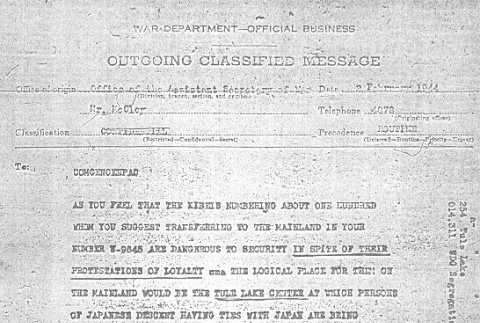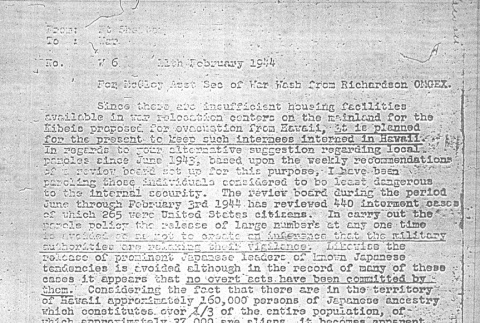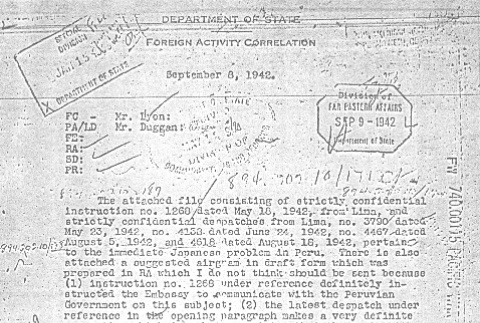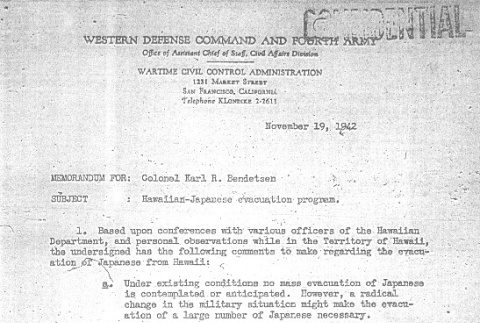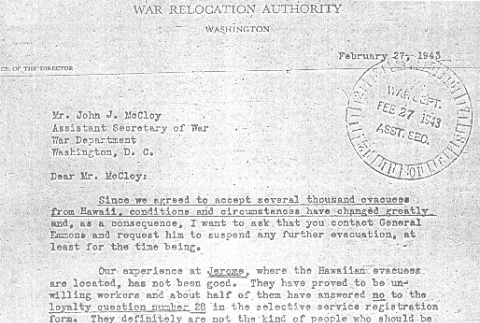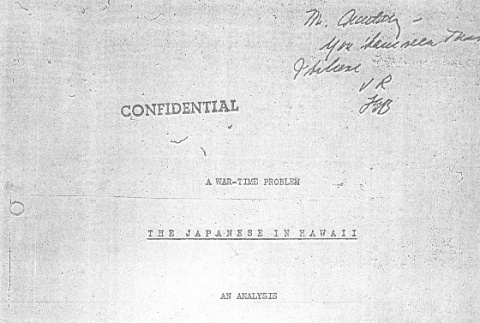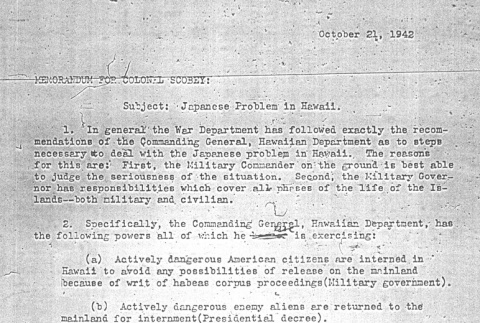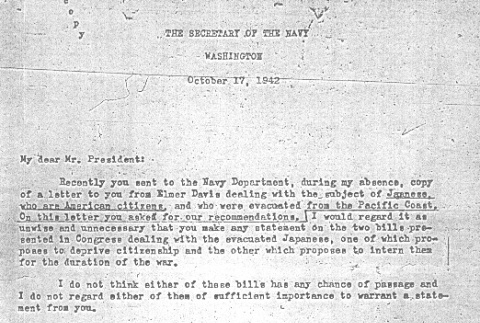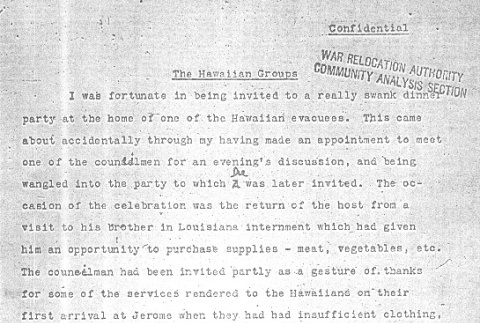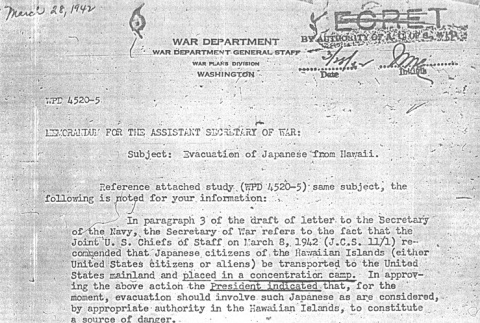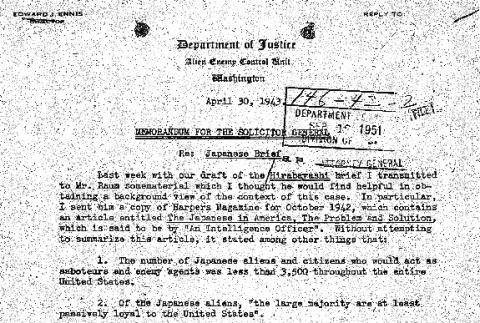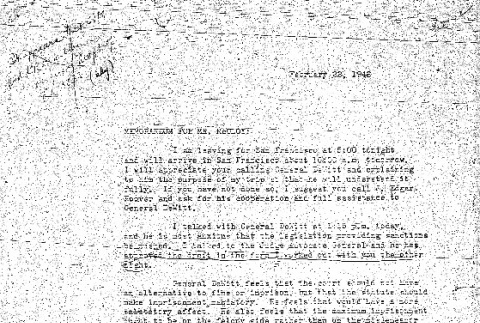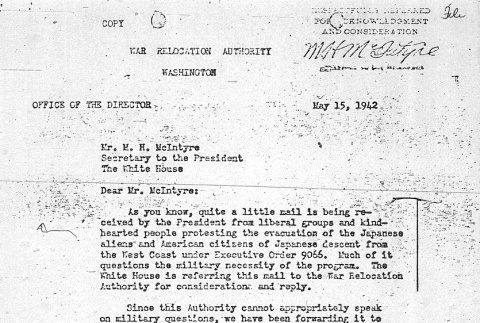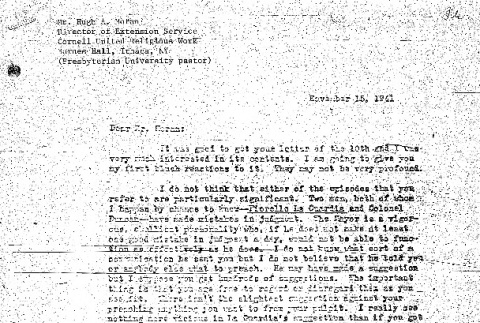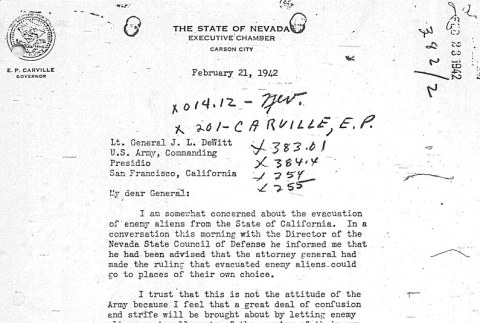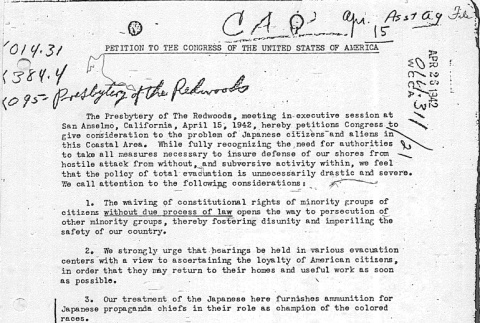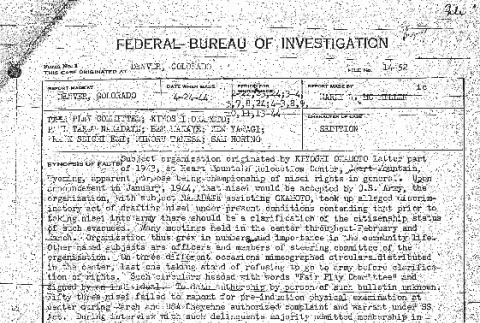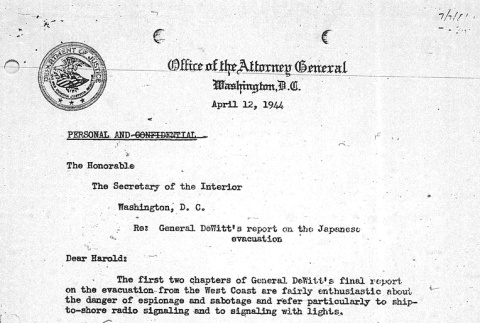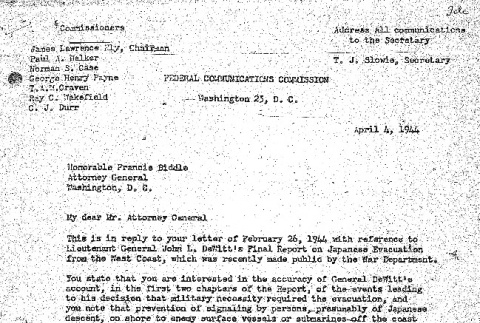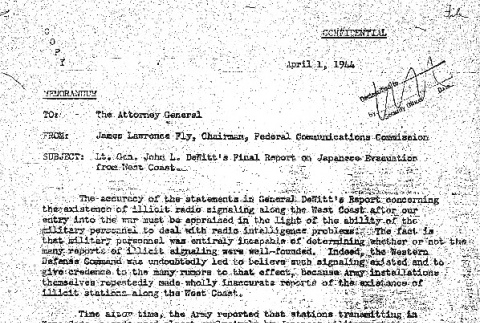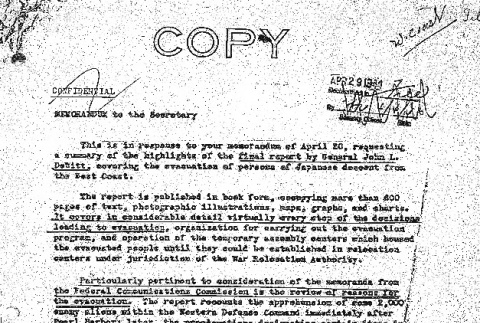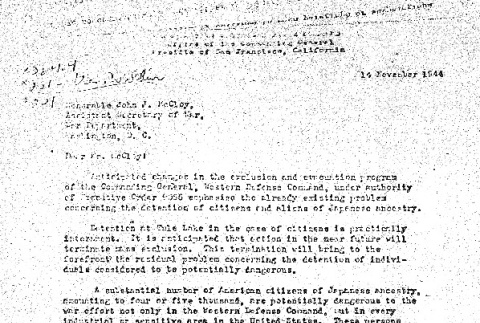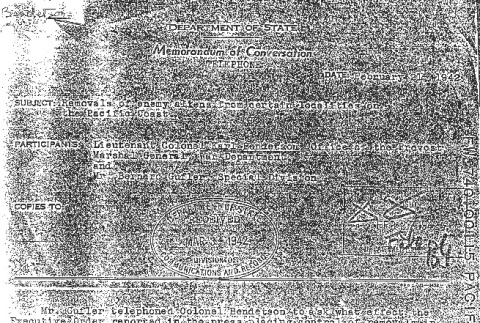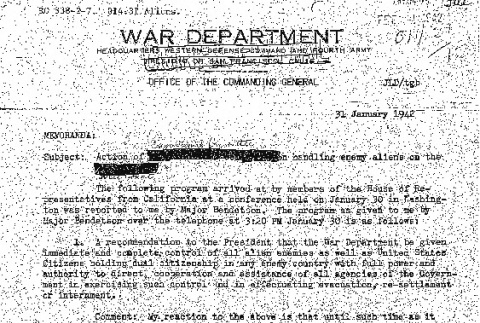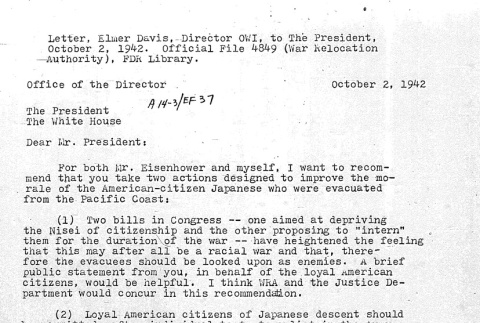Commission on Wartime Relocation and Internment of Civilians Collection ddr-densho-67
352 items
352 items
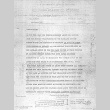
doc
Memo from the office of John J. McCloy (ddr-densho-67-58)
Memo from the office of John J. McCloy to an unknown recipient regarding transfer of Hawaiian Kibei to Tule Lake. Author states that Kibei cannot be transferred due to lack of facilities and the fear that the Kibei will add to a growing militant section of internees. This would be problematic because the Japanese military might …
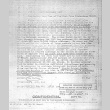
doc
Memo to John J. McCloy regarding Kibei in Hawaii (ddr-densho-67-59)
Memo to John McCloy from unknown source regarding Hawaiian Kibei parolees. The author states that he had been paroling Kibei considered least dangerous and monitoring them as an alternative to transfering them to the mainland. This process only applied to a tiny population so the military would not be accused of "relaxing their vigilence." Author also …
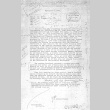
doc
Memo from J. Daniel Hanley (ddr-densho-67-60)
Memo from J. Daniel Hanley to undisclosed recipient regarding evacuating Peruvian Japanese to the U.S. Discusses previous communications with the American Embassy in Lima including recommendations to the Peruvian government.
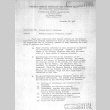
doc
Memo to Col. Karl Bendetsen from David J. McFadden (ddr-densho-67-61)
Memo to Col. Karl Bendetsen from David J. McFadden on the existing Hawaiian-Japanese evacuation program. Suggests not evacuating Japanese for a number of reasons: evacuation would "cripple" the Hawaiian economy, lack of resources, etc. Suggests small-scale evacuation for people matching certain criteria -- this would be a "token evacuation" to satisfy those who strongly advocated for …
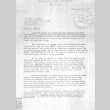
doc
Memo from Dillon S. Myer to John J. McCloy (ddr-densho-67-62)
Memo from Dillon S. Myer to John J. McCloy on Hawaiian-Japanese evacuees. Asks McCloy to inform General Emmons to stop evacuation to the mainland. Describes situation at Jerome where Hawaiian Japanese have been difficult -- unwilling to work, answering "no" on the loyalty questionnaire. Also, there are no additional resources to provide the evacuees. Myer suggests …
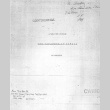
doc
Report: "A War-Time Problem: The Japanese in Hawaii" (ddr-densho-67-63)
Extensive report based mainly on observations and U.S. census materials. Argues that Japanese are a threat to military security in Hawaii and something must be done to handle the situation. Presents a number of facts that he thinks support this, analyzes these facts, and suggests possible plans. These include total evacuation of certain areas, creation of …
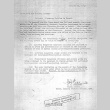
doc
Memo: "Japanese Problem in Hawaii" (ddr-densho-67-64)
Memo to Col. Scobey from G.S. Eckhardt regarding the Japanese in Hawaii, specifically Gen. Emmons' power to evacuate. Suggests that Emmons is currently evacuating all aliens and "dangerous" citizens to the mainland, but cannot send more than 5,000.
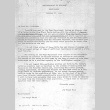
doc
Series of memos regarding the Japanese in Hawaii (ddr-densho-67-65)
Series of memos regarding the Japanese in Hawaii. Memo 1: from Frank Knox to President Roosevelt. He suggests that proper action against the Japanese in Hawaii is not being taken and urges the President to look into the matter. Memo 2: Henry Stimson to President Roosevelt. Assures the President that the situation is under control -- …
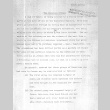
doc
Report: "The Hawaiian Groups" (ddr-densho-67-66)
Report written for the WRA on Hawaiian evacuees in the U.S. Describes the status of Hawaiian evacuees based upon the observations by the author at a "swank dinner party." The author concludes that evacuation to the mainland was not voluntary and the conditions at Jerome were harsh for the Hawaiian evacuees. Also noted tensions between mainland …
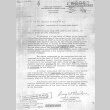
doc
Memo to John J. McCloy from Dwight Eisenhower (ddr-densho-67-67)
Memo to John J. McCloy from Dwight Eisenhower on Hawaiian-Japanese evacuation plans. States that evacuation and detention "in a concentration camp" has been approved, including "enemy aliens" and U.S. citizens.
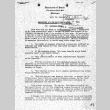
doc
Memorandum for the Solicitor General, Re: Japanese Brief (ddr-densho-67-68)
Memo to the Solicitor General from Edward J. Ennis about an article written by Lt. Com. K. D. Ringle. Pg. 1: Ennis summarizes the article, which states that the Japanese are loyal, thus internment should have been on an individual basis. Pg. 2: Ringle's views are shared by the Navy, who thinks that evacuation was handled …
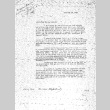
doc
Memo to John J. McCloy from Karl Bendetsen (ddr-densho-67-69)
Memo to John J. McCloy from Karl Bendetsen about General DeWitt's stance on the draft. Suggests that DeWitt wants harsher penalities for draft resistance, i.e. making it a felony instead of a misdemeanor. Reasons that "you can shoot a man to prevent the commission of a felony" and not a misdemeanor.
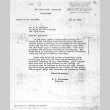
doc
Memo to Mr. M.H. McIntyre from M.S. Eisenhower (ddr-densho-67-70)
Memo to Mr. M.H. McIntyre from M.S. Eisenhower about letters protesting evacuation. States that the President is receiving many notices from liberal groups questioning the legality of evacuation.
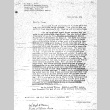
doc
Letter to Hugh Moran from John J. McCloy (ddr-densho-67-71)
Letter to Hugh Moran from John J. McCloy in response to a previous letter written to McCloy. McCloy discusses civil liberties and suggests that this country is fanatic about preserving civil liberties, and in order to protect freedom, civil liberties must be restrained.
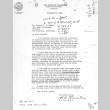
doc
Letter to General DeWitt from Gov. E. P. Carville about Japanese evacuation (ddr-densho-67-72)
Letter to General DeWitt from Gov. E. P. Carville about Japanese evacuation. Gov. Carville is concerned that the "enemy aliens" would be let loose in his state. He would allow Japanese in his state only if they were put in "concentration camps."
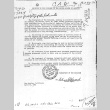
doc
Petition to Congress from the Presbytery of the Redwoods (ddr-densho-67-73)
This group protests the evacuation of Japanese Americans on the grounds that it is unconstitutional. They suggest holding hearings in camps and then allowing the innocent to return home. They also warn that harsh treatment of Japanese Americans will fuel Japanese propaganda and lead to punishment of American POWs.
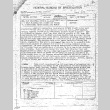
doc
Excerpts from an FBI report on the Fair Play Committee (ddr-densho-67-74)
Excerpts from an FBI report on the Fair Play Committee (FPC) at Heart Mountain concentration camp, Wyoming. Includes the author's observations and impressions of FPC daily activities, meetings, etc. Also included are petitions written to Congress by the FPC and translations of FPC publications. Report ends with interviews with FPC leaders Paul Nakadate and Frank Emi.
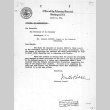
doc
Memo Re: General DeWitt's report on the Japanese evacuation (ddr-densho-67-75)
Memo from Francis Biddle to Harold Ickes on DeWitt's Final Report. Biddle informs Ickes that parts of DeWitt's report have been refuted by the Federal Communications Commission. Suggests that the information the government received about ship-to-shore signaling and other sabotage was inaccurate.
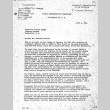
doc
Letter from the FCC to Francis Biddle (ddr-densho-67-76)
Letter from the Federal Communications Commission (FCC) to Francis Biddle on radio signaling as described in DeWitt's Final Report. The FCC reviewed their records and found that there was no evidence of any illegal signaling during Dec. 1941 - July 1942. The FCC also refuted two other things that DeWitt told Biddle justifying evacuation - the …
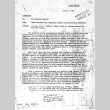
doc
Memo from James Fly to Francis Biddle (ddr-densho-67-77)
Memo from James Fly to Francis Biddle on the incompetence of the Army's Intelligence division. Fly informs Biddle that all of the Army's reports on illegal radio signaling were false. Suggests that the Army's Radio Intelligence Division was so inept that they consistently misinterpreted data, which was unquestioned by J.L. DeWitt. Calls the entire division "pathetic" …
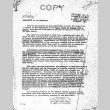
doc
Memo from Dillon Myer to Secretary of War Henry Stimson (ddr-densho-67-78)
Memo from Dillon Myer to Secretary of War Henry Stimson regarding DeWitt's Final Report. Myer summarizes DeWitt's reoprt, focusing on his justifications of military necessity: illicit communications and ship-to-shore signaling. Quotes parts of DeWitt's report where he discusses the threat of the Japanese on the West Coast. In summary, Myer suggests that the decision to evacuate …
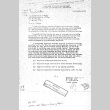
doc
Memo to John McCloy from Chief of Staff W.H. Wilbur (ddr-densho-67-79)
Memo to John McCloy from Chief of Staff W.H. Wilbur on the limitations of Executive Order 9066. States that 5,000 Japanese Americans are considered disloyal and dangerous to the U.S., and that detaining these disloyals is not possible under Executive Order 9066 and if carried out would interfere with the "normal civil rights of American citizens." …
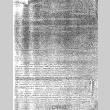
doc
Memo of a conversation between Col. Bendetsen and Bernard Gufler (ddr-densho-67-80)
Memo of a conversation between Col. Bendetsen and Bernard Gufler. Bendetsen and Gufler discuss the role of the War Department in evacuation -- whether Italian nationals should also be evacuted. Both agree that the Italians should stay where they are. Bendetsen disagrees with the way the Department of Justice is handling evacuation, and suggests that they …
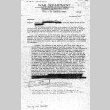
doc
Memo by General DeWitt (ddr-densho-67-81)
Memo by General DeWitt regarding evacuation of "enemy aliens" on the West Coast. DeWitt comments on a program for evacuation as decided by the California House of Representatives and agrees that the Army and not the Justice Department should control evacuation. Suggests that the Attorney General is not doing an adequate job. He indicates that he …
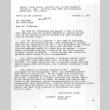
doc
Letter to President Roosevelt from Elmer Davis (ddr-densho-67-82)
Letter to President Roosevelt from Elmer Davis. Davis suggests that President Roosevelt publicly respond to allegations that the war is racial. Also suggests that the President open voluntary enlistment to the evacuees. Seems concerned about Japanese propaganda in Asia, which also calls the war a "racial war." Davis urges the President to consider intelligence reports of …
